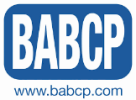I am a clinical and counselling psychologist and a BABCP fully accredited CBT therapist who specialises in all kinds of trauma as well as a variety of common mental health conditions.
This means, that apart from my main therapy modalities, I have additional training and many years of experience of delivering other therapies.
My clinical training started over 24 years ago and the first ever modality I trained in was SFBT. I continue to draw on principles and techniques of SFBT in my work and find it particularly useful when working with people who have clear, future-orientated goals and seek therapy or coaching to help them achieve their goals.
About me as a Solution Focused Brief Therapy therapist
Acceptance and Commitment Therapy (ACT)
As the name suggests, Solution-Focused Brief Therapy (SFBT), also called Solution-Focused Therapy (SFT), is future-focused, goal-directed, and focuses on solutions, rather than on the problems that brought clients to seek therapy. It offers a highly collaborative approach, incorporating positive psychology principles and practices, and focusing on clients’ resources and hopes for the future. In the most basic sense, SFBT is a hope friendly, positive emotion eliciting, future-oriented vehicle for formulating, motivating, achieving, and sustaining desired behavioural change. Solution Focused Therapy acknowledges distress but focuses on success. Solutions are developed by first generating a detailed description of how the client’s life will be different when the problem is gone, or their situation improved to a degree satisfactory to the client. Therapist and client then explore the client’s life experience and behavioural repertoire to discover the necessary resources needed to co-construct a practical and sustainable solution that the client can implement.
The most important aspects of SFBT’s philosophy include assumptions that:
(1) change is constant and inevitable,
(2) clients are the experts and define goals,
(3) clients have resources and strengths to solve problems,
(4) therapy needs to be future oriented
and (5) therapy needs to emphasise what is possible and changeable
(6) clients want change
Resources
'All problems have exceptions. Exceptions are those times when the presenting problem could have happened but somehow it did not. Looking for these exceptions is critical to building further solutions.'
~ Insoo Kim Berg & Therese Steiner
How can SFBT be of help to you?
This form of therapy has been found to be effective in treating a wide range of mental health conditions, including depression, anxiety, stress, addictions and eating disorders. The principles of SFBT are often used in coaching.
